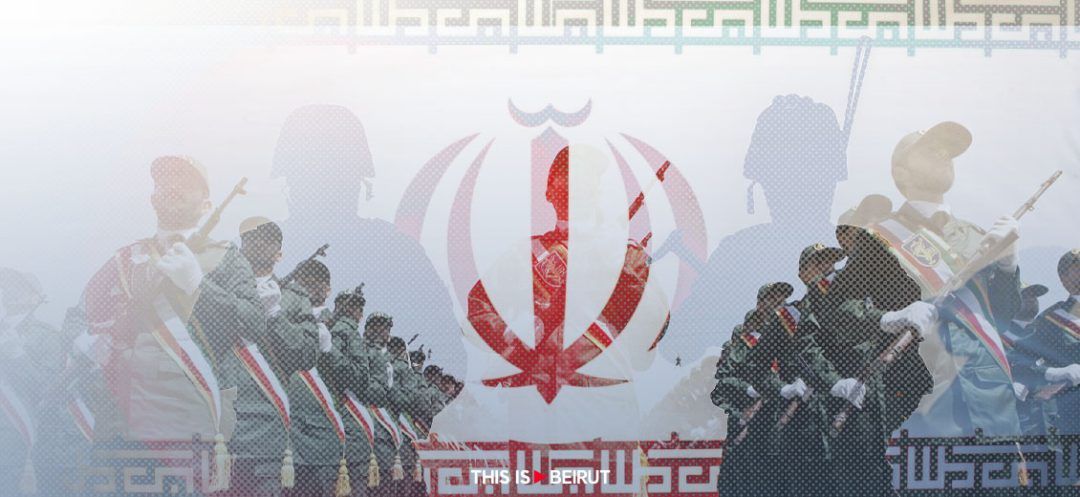- Home
- War in the Middle East
- Why Is Iran Upholding a Precarious Calm in Lebanon?

The Iranian poise and restraint prevailing on the Lebanese front may raise questions, especially given the recent escalation in the region following the Kerman attack. The Iranian Revolutionary Guard accused the groups behind the attack of having Israeli ties and undergoing training in northern Iraq, justifying the assault on Erbil.
However, they are well aware of the active American presence in this region, recognized as the economic and financial hub of Iraq.
In addition, through its airstrikes in Aleppo, Iran strategically conveys a complex message, asserting its potential dominance over the entire Middle East. However, the scope of this retaliation is limited, as Lebanon was not dragged into any retaliatory-induced scenario, even in the aftermath of the recent targeting of the burial site of Iranian Commander Qassem Soleimani.
To this end, Israeli media reported the infiltration of a Hezbollah group into northern settlements, in an attempt to reshape the dynamics and garner sympathy — a longstanding strategy perfected by the Israelis. However, it soon became clear that the incident was merely a strategic maneuver, conducted without significant repercussions.
In light of this reality, substantial questions emerge about Iran's measured approach to the Lebanese front, compared to, for example, its stance in Iraq. The anticipation surrounding the targeting of the southern suburb and the assassination of al-Arouri hinted at an expected overwhelming and exceptional response. However, the actual outcome was an increased missile launch, coupled with a carefully crafted narrative – aimed at the "resistance" audience – that the targeted objectives were of utmost importance.
What underlies Iran’s keen interest in maintaining a semblance of calm in Lebanon? The key lies in Lebanon being Iran's ultimate bargaining chip in any negotiations it seeks. This is not only because Hezbollah has effectively asserted itself as a dominant force shaping Lebanese politics, but also because Lebanon's complex situation intersects with the interests of major global powers. Consequently, Lebanon becomes a valuable and strategic asset that Iran is willing to leverage in a calculated manner.
Iran is well aware that Lebanon holds a unique standing in the perception of the West, where international interest fluctuates in response to evolving circumstances. The United States has chosen Lebanon as the location for its largest embassy complex in the Middle East, maintaining its operations steadfastly despite the tumultuous events of recent years. This serves as a distinct signal of the enduring American interest in the Lebanese scene and a strategic intention to establish a solid foundation for US influence in the region.
France, for its part, sees itself as the primary guardian of Greater Lebanon, and a steadfast advocate for the well-being of Christians in the region. Despite historically being referred to as the "Mother of the Maronites," current circumstances necessitate the acknowledgment of Christians as a cohesive entity in response to demographic realities.
In addition, Iran is well aware of Russia's influence along the Mediterranean coast. France, Italy and Russia’s vigilance on the resource-rich Lebanese sea acts as a deterrent, limiting Iran's ability to escalate its involvement in Lebanon. Moreover, Iran knows that its capacity for internal negotiations within Lebanon, especially along the border with Israel, will render its cause all the more symbolic. However, this is contingent on the execution of Resolution 1701, a scenario that would place the southern front outside its sphere of influence and undermine Hezbollah's basis for resistance."
By preserving a semblance of a lull in Lebanon, Iran is implying that while the Lebanese reality falls short of the ideal, it is unlikely to worsen. There is a shared understanding that these fronts will uphold a controlled level of tension, awaiting a shift in developments. Meanwhile, Shiite political groups are expecting to secure some demands within the state and the constitution in exchange for their arms. A settlement is looming, but it would require an explosive global reality, and that is also imminent.
Read more



Comments